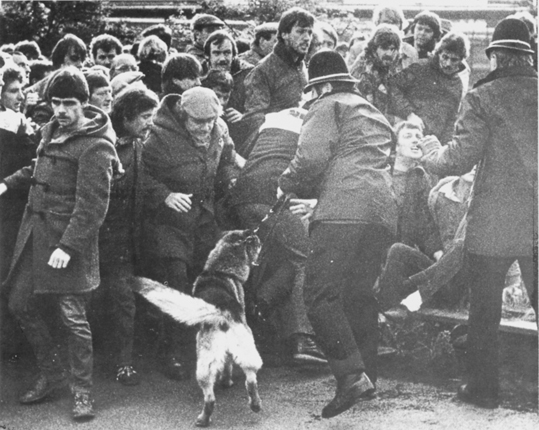ON Saturday, Wakefield was like a sea of miners’ banners, declaring: ‘United we stand, divided we fall,’ ‘An injury to one is an injury to all,’ ‘United we bargain, divided we beg.’
There was also a brass band of young performers, and the samba band of old diehards, as a crowd of hundreds of people, stirred and marched forward into the centre of Wakefield.
The march was the start of ‘With Banners Held High’, a festival of trade union and working class Yorkshire culture, that is in its fifth year.
National Secretary of the National Union of Mineworkers (NUM) Chris Kitchen said: ‘This is deeply important to me. We must remember where we come from, as we struggle for a fairer society.
‘2019 marks the 35th anniversary of the Battle of Orgreave, a state orchestrated riot against what was intended to be a peaceful picket, at the height of the Miners’ strike.
‘As one of those striking miners that was there on that day I can say without doubt that there was no intention on behalf of the pickets to hold a violent picket. We were there in large numbers as a show of solidarity.
‘We did not go armed with truncheons wearing body armour and helmets with riot shields to hide behind.
‘Communities across West, North and South Yorkshire bore the brunt of this state-sanctioned violence, and the name Orgreave leaves a potent and bitter taste in the mouths of people across our county not least because while the Battle of Orgreave was well documented and recorded, the same police tactics on a smaller scale were happening on picket lines up and down the country.
‘We still have seen no justice for the immeasurable pain caused to the families and victims there that day.
‘But at With Banners Held High we are honouring their memory, as we march through the streets of Wakefield.
‘The world of work is changing, but that doesn’t mean we have to settle for zero-hours contracts, hollowed out communities, and poverty pay.’
